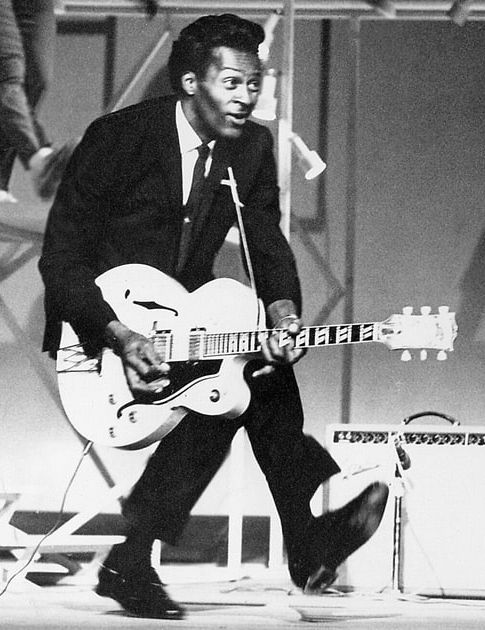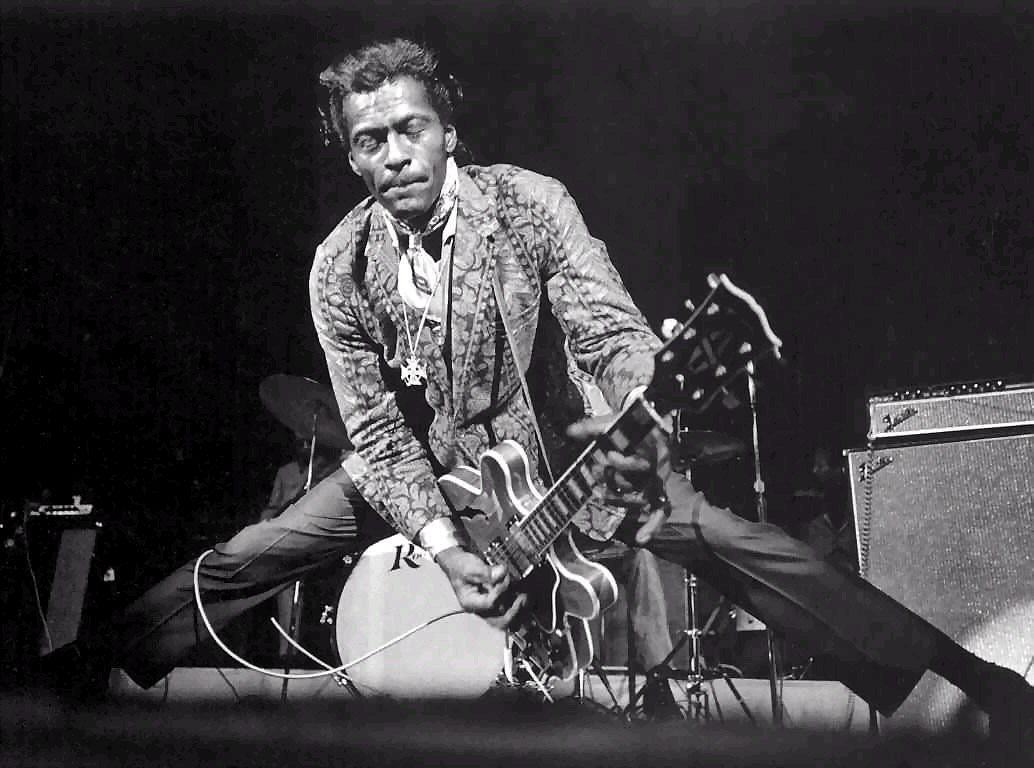John Lennon once said: “If you tried to give rock and roll another name, you might call it Chuck Berry.” He couldn’t have been more right. Berry influenced not only the beginning of rock and roll, but also the generations thereafter. He helped break sexual taboos and rebel against authority, and he did it all with swagger.
Born in 1926, Berry made his stage debut as a teen in junior high school. With the accompaniment of a friend on guitar, the reaction from the crowd encouraged him to learn some guitar chords from his partner, and he was hooked from then on. He spent his teen years developing his talent while saving money freelancing as a photographer, working with his father doing carpentry, and also moonlighting as a hairdresser in St. Louis. Inspiring stuff.
By the early '50s, he was playing guitar in bands, and in May 1955 travelled to Chicago where he met Leonard Chess of Chess Records to discuss releasing his blues material. Chess was most interested in his reworking of Bob Wills’ country tune, Ida Red, which Berry had renamed Maybellene. The song was recorded, and went on to sell over a million copies, hitting the top 10 that September.
Berry began playing at the Cosmo Club in St Louis earning $21 per week, competing with local rivals like Albert King and Ike Turner. Berry decided that if he was going to break into the mainstream, he had to know how to package himself well: by appealing to white teenagers. And he did. The next few years would see at least 10 more top 10 hits, including Roll Over Beethoven, Too Much Monkey Business, Brown Eyed Handsome Man, and Rock and Roll Music.
Around 1957, he opened Berry Park in Missouri. With a guitar-shaped swimming pool, golf course, hotel suites, and nightclub, it was his pride and joy.
“Now that’s what I call groovy,” he told Rolling Stone. “To own a piece of land is like getting the closest to God, I’d say.” Making a criminal record before a vinyl one, Berry used his several stretches inside pretty constructively, taking courses to complete his high school education and penning some of his most notable songs: No Particular Place To Go, Tulane, and Nadine.

